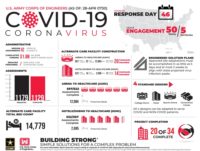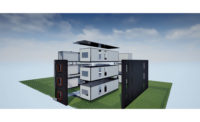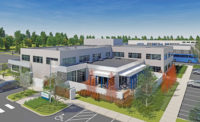Mark III Construction is not only a top California mechanical, electrical and plumbing subcontractor, the Sacramento-based company is also an innovator, recently launching Project Mountain, a delivery method that standardizes design and manufacturing-repeatable products.
Spurred by projects such as Sacramento’s Metro Air Park and the Gallo Glass Compressed Air System in Modesto, Calif., Mark III posted 2018 revenue of $65.2 million, up 10.6% from $59 million in 2017.
Brothers Mark and Tim O’Brien founded Mark III in 1976 as an electrical contractor but soon grew their business into a full-service commercial subcontractor performing MEP work and installing underground utilities for the food and beverage, light and heavy industrial, health care, education and water and wastewater industries throughout Northern and Central California.
Now, thanks to Project Mountain and a robust construction economy, Mark III has built a substantial backlog of work for 2020 and beyond, says Dan Carlton, president. To combat recent labor shortages, Mark III is working to perfect the manufacturing process.
“The idea is to get our MEP manufacturing facility running at a 100% capacity to allow us to increase revenue without the large volume of skilled labor we require now,” says Carlton. He points to the company’s 24,000-sq-ft, state-of-the-art MEP manufacturing facility that opened this year. The company, with an additional office in Fresno, Calif., invites owners, general contractors and other specialty firms to tour the facility. The company believes that helps encourage collaboration and eliminates construction waste.
“Our biggest concern lies in the availability of skilled labor,” Carlton says. “We continue to see the Bay Area vortex recruit talent from across the state and into the Bay market. In some cases, tradesmen are being offered double their wages to battle the commute, and the rest of the Northern California market is just not able to compete with those numbers.”
Project Mountain
Project Mountain began in 2017 as a series of internal research and development initiatives aimed at improving quality, simplifying design and reducing waste while increasing project reliability. The delivery method includes prefabricated wall panels complete with in-wall utilities for standardized and repeatable building units.
“Project Mountain is the automobile arriving at the horse barn,” says Carlton. “Instead of [doing] construction projects, we are developing repeatable products.”
He estimates that Project Mountain saves Mark III’s medical-sector customers an average of 16% to 21% on their MEP wall-framing costs and reduces field installation to a fraction of the time for stick-build construction, thus decreasing construction schedules by 20%.
“Each panel consists of electrical, low-voltage and plumbing systems already built into the metal-stud framing,” says Makayla Oei, Project Mountain project executive. Mark III delivers stacks of wall panels to the jobsite ready to be placed by any non-trade-specific mechanic. That, in turn, leads to labor cost savings and a big reduction in waste material.
“We were able to install the main gang restroom plumbing wall panels in just one day at Metro Airpark, compared to the several weeks this typically takes to install,” Oei says.
Mark III has used Project Mountain for the SMF 3 Amazon Stockton project in Stockton, Calif., where multiple trades applied the method in design-build of a 615,000-sq-ft distribution warehouse with 40,000 sq ft of offices. Working with Big-D Construction, Mark III designed and installed a new plumbing system and added 58 HVAC units. The project was completed in April.
Mark III also used Project Mountain for an upgrade of Gallo Glass Compressed Air System, the largest glass plant in North America. Mark III expanded the compressed-air facility by adding two 30,000-gallon air-receiver tanks and six 2,300 HP air compressors with associated components.
The Gallo Glass upgrade required a new cooling-tower yard to circulate 15,000 gallons of cooling water to the air compressors. The yard holds three cooling towers, eight pumps and three plate heat exchangers. Using around the clock manpower, the company, working with contractor Haskell Co., installed interconnecting, welded stainless-steel compressed-air piping (up to 20-in. pipe) and a Victaulic cooling water system on a five-month schedule that finished in May.
Up next, Mark III will use Project Mountain on a Sutter Health design-build project that calls for MEP design and underground and overhead work with wall-panel manufacturing and installation. The project team includes architect Boulder & Associates and general contractor Deacon Construction.
“Mark III is an innovative thought leader in prefabrication implementation and design standardization,” says James Pease, a former Sutter Health regional manager for facility and property services who has worked closely on Project Mountain over the past few years. “They are pushing the evolution of medical-clinic design and construction strategy to speed up delivery while reducing variation and cost.”
Carlton says Mark III works hard to develop better construction processes for the health care sector because the firm trusts the durable nature of the industry. “The ability to manufacture systems for medical facilities will set us apart when a recession causes margins to drop and competition to increase,” he says. He adds that Mark III believes all owners should be able to build more with less.







